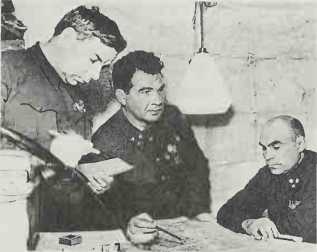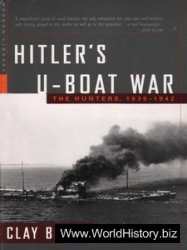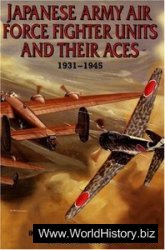Northwest Korea beyond the Taeryong river. On October 25-26 1950 the 27th Commonwealth Infantry Brigade took Pakchon and seized a crossing over the Taeryong. The Brigade then began to advance towards Chongju, defeating a North Korean force in hills south of the town on October 29. Chongju fell the following day. See also chongchon river, battle OF the; pakchon, battle of; un-SAN, battle of.
Chosin reservoir (Lake Chang-jin). Lies in the mountains of northeast Korea. In December 1950, the 1st US Marine Division and elements of the US 7th Infantry advancing towards the Yalu on either side of the reservoir were ambushed by the Chinese. There was grave concern in Washington that the force would be surrounded and wiped out, but the Marines managed to fight their way back to the sea along narrow mountain roads and were evacuated from Hungnam.
Chou En-lai (1898-1976). Chinese. A close associate of Mao in the development of the Chinese Communist Party, Chou maintained a pragmatic and international perspective on Chinese affairs. He worked closely with the Nationalists during the war against Japan and showed considerable diplomatic skill during the period in which he served as Prime Minister from 1949 to 1976.
Christie. Name given to the revolutionary form of tank suspension developed in the US in 1930s by Col Christie. See also tanks.
Christie, Vice Adm Ralph Waldo
(b. l893). US. A pioneer submarine officer and torpedo specialist; commanded submarine C-1, 1917—18. After Pearl Harbor, he took a squadron of submarines (No.20, later No.5) to Brisbane, where he became Commander Eastern Australia Submarine Group. Later at Fremantle he became Commander of Submarines, South Pacific in 1943. He initiated a most successful submarine campaign from that base, but at the end of 1944 he was removed from this post at Kink-aid’s instigation, and subsequently commanded the naval base at Bremerton, Washington.

Marshal Chuikov plans his campaign
Chuikov, Marshal Vassili (19001982). Russian. Chuikov joined the Red Army as a recruit in April 1919 and won command of a regiment during the Civil War. He subsequently graduated from the Frunze Military Academy in 1925 and was sent to China in 1926 where he became a military adviser to Chiang Kai-shek. In 1937 he returned to the Soviet Union and studied mechanized warfare. He participated in the invasion of Poland in September 1939 and gained further combat experience during the war with Finland. In 1941 he returned to China but was recalled in May 1942 to take command of the Sixty-Second Army. The task ahead of him soon proved singularly daunting with the German Sixth Army driving towards Stalingrad. With his headquarters under almost constant enemy bombardment, Chuikov ordered his men to contest every inch of the city. Close-quarter fighting inhibited the Germans’ use of aircraft and armour and while their strength was eroded, Chuikov supplied and reinforced his troops from across the Volga. The destruction of the German Sixth Army allowed Chuikov the opportunity to adopt a more offensive role and, now commanding the Eighth Guards Army, he took part in the Red Army’s drive into Poland and Germany. His greatest moment came on May 2 1945 when he received the surrender of Berlin from its commander, Generalleut-nant Weidling. Chuikov later commanded Soviet forces in Germany and in 1972 was senior Inspector General in the Ministry of Defence. MS.
Chu Lai, Battle of (1965) see VAN TUONG peninsula, BATTLE OF.
Church, Brig Gen John Huston
(1892-1953). US. To Korea as head of ghcj Advance Command and Liaison Group, June 27 1950; succeeded Gen Dean as commander, 24th US Infantry Division, July 20 1950.
Churchill, Sir Winston Leonard Spencer (1874-1965). Br. First Lord of the Admiralty 1911—15 and 1939-40. Prime Minister 1940-45 and 1951-55. Churchill’s changing political allegiances and his impulsive nature won him both admiration and suspicion. He personally joined in the desperate and unsuccessful defence of Antwerp in 1914. His bold conception of a forcing of the Dardanelles in 1915, which, had it been successful, might well have changed the whole course of the war, ended in a much larger scale of failure and his resignation from the government. After seeing active service on the Western Front, he returned to Lloyd George’s government as Minister of Munitions in 1917. Between the wars he was in and out of the government first as a Liberal and then as a Conservative. In the last years of peace, he criticized both Baldwin’s and Chamberlain’s governments from the Conservative benches, persistently arguing that the rearmament programme was insufficient to meet the threat from Hitler’s Germany. On the outbreak of war, he joined Chamberlain’s government as First Lord of the Admiralty, but with substantially wider influence than that office alone conferred. He took a major hand in the disastrous Norwegian campaign but the blame was laid, not by him, but by the House of Commons and public opinion, upon Chamberlain. Churchill himself emerged from past controversies as the national leader of a coalition government which succeeded in uniting Britain.




 World History
World History



![Road to Huertgen Forest In Hell [Illustrated Edition]](/uploads/posts/2015-05/1432477693_1428700369_00344902_medium.jpeg)





